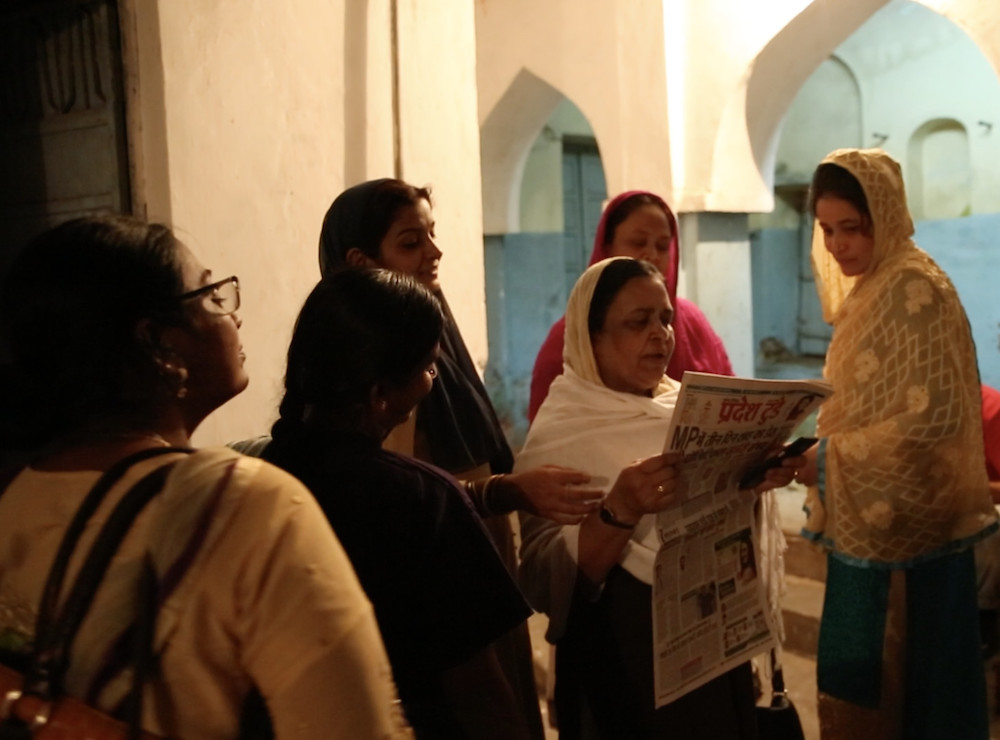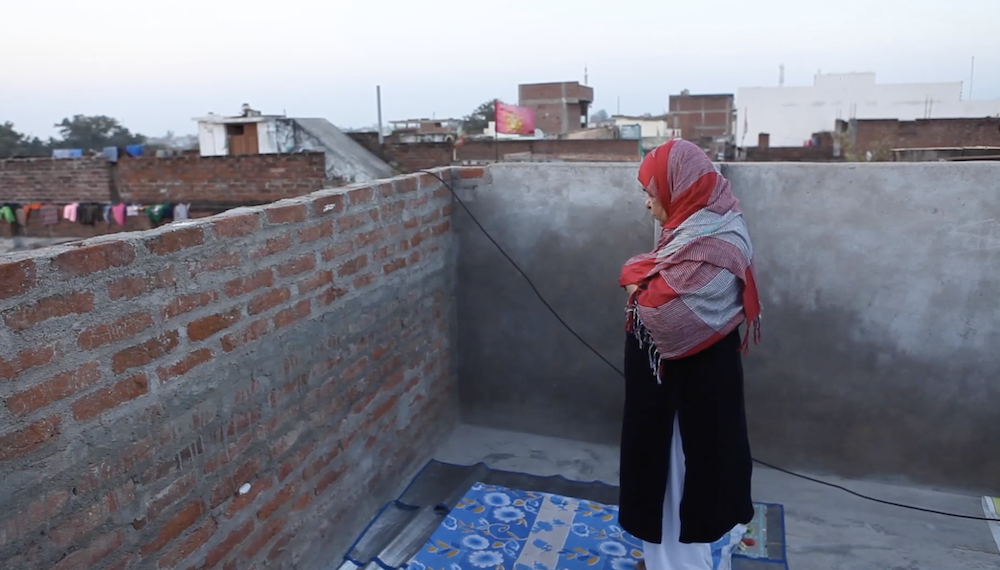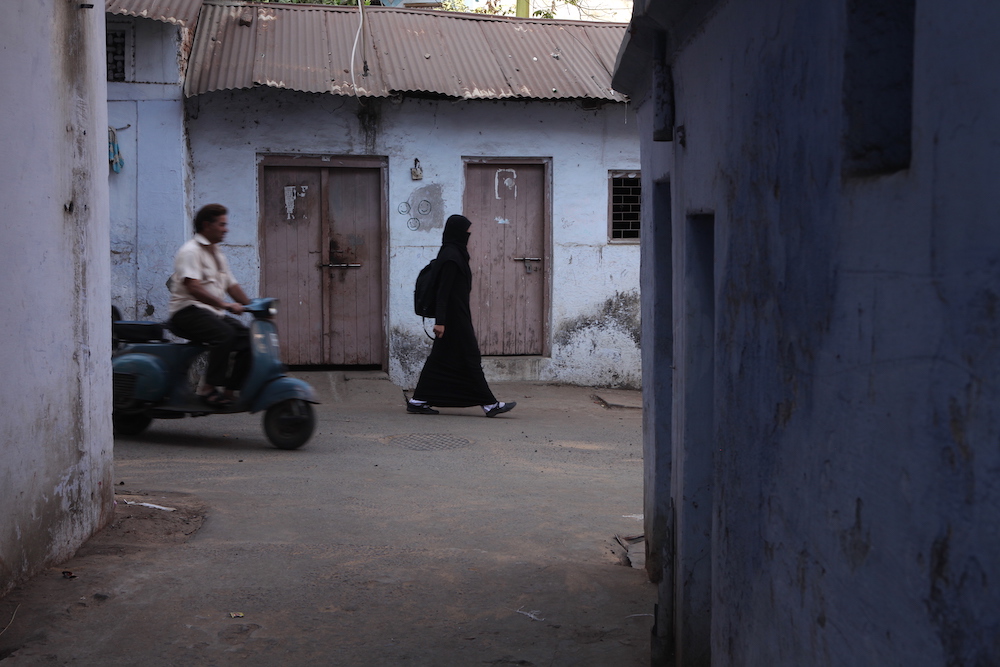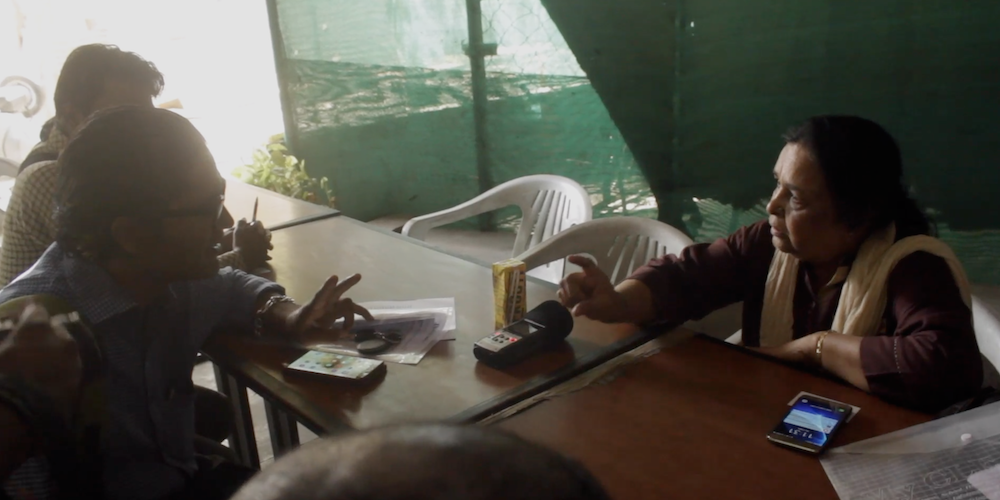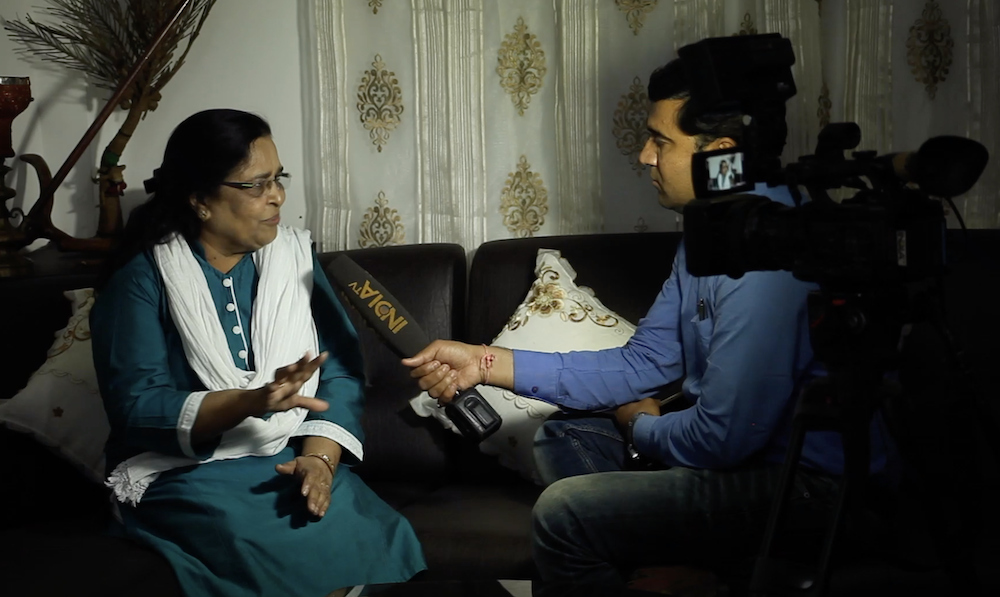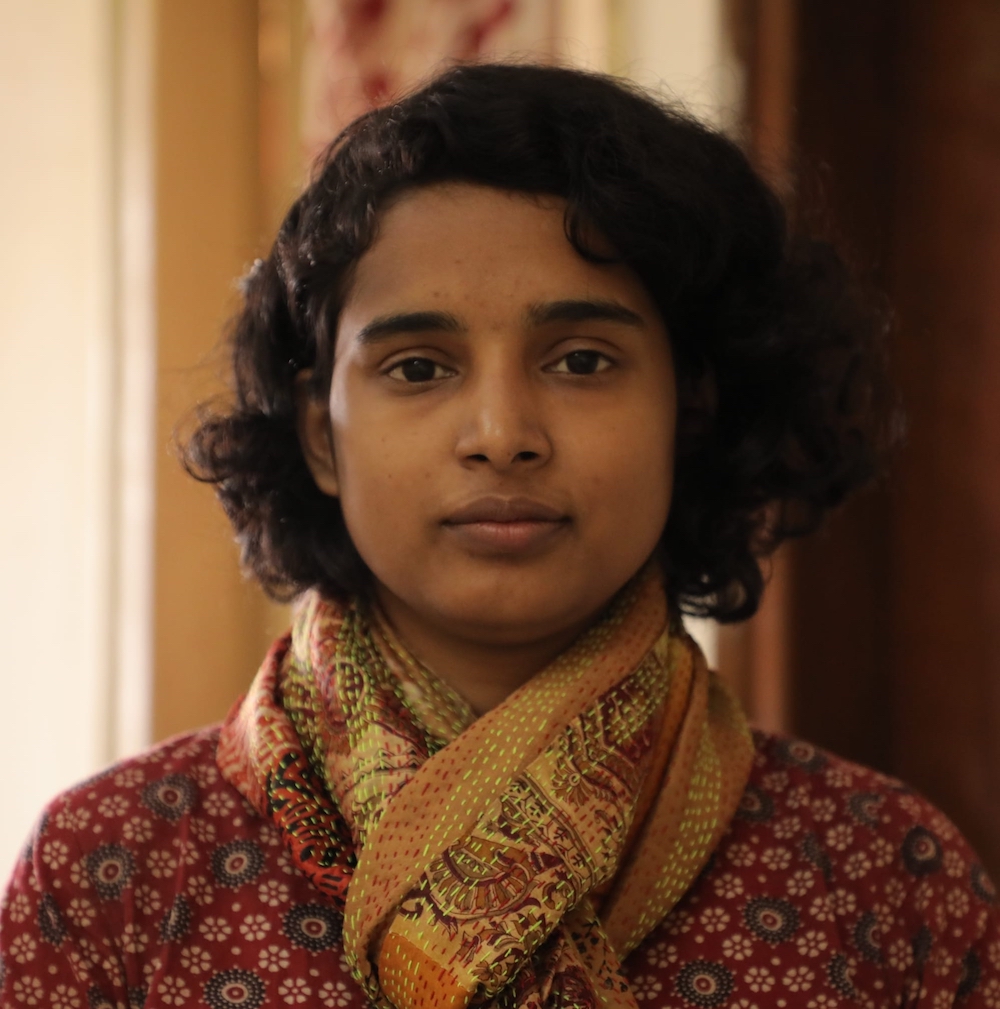Name of the film HOLY RIGHTS
Original Name Muqaddas Safar
Directed by Farha Khatun
Duration 52 mins, 50 sec
Year 2019
CountryIndia
Language Urdu
PRINCIPAL CREW
Producer Priyanka More
Associate Director Biswajit Das
Editor Sankha
Cinematographer Debalina, Priyanka Biswas
Sound re-recording and Design Sabyasachi Pal
Music Santajit Chatterjee
Trailer Editor Abhro Banerjee
Sound Mixing Anirban Ganguly
Colorist Uttam Kumar Pandey
Text Jhelum
About the film
Safia, a deeply religious Muslim woman from Bhopal in Central India, is driven by her belief that because of the patriarchal mindset of the interpreters of 'Sharia', Muslim women are denied equality and justice in the community. She joins a program that trains women as Qazis, (Muslim clerics who interpret and administer the personal law), which is traditionally a male preserve. The film documents her journey as she struggles and negotiates through hitherto uncharted territory, exploring the tensions that arise when women try to change the status quo and take control of narratives that so deeply affect their lives. Through Safia 'Apa' or elder sister as she is called, several other women join the program; through their lived experiences, the film comments on the arbitrariness of the instant 'triple talaq' practice (Instant divorce by saying Talaq thrice). These and other landmark moments, political and legal, find reference in the film as does the changing socio-political scenario that impact their lives. In its four years journey, the film also documents the movement against triple talaq, Muslim women's struggles to break free of patronising voices within the community as well as resist forces outside from appropriating their movement to suit their own political agenda.
Filmmaker's Statement
It is a deeply personal film for me. My journey as a woman, as a Muslim woman made me focus more on women's lives, to see the world through their narratives, to interpret everyday realities through their eyes, their standpoints. Hence, gender serves as a critical lens in most of my work. Having experienced the insidious and intricate ways in which religion and gender interact in the power play, the story of Safia and the various unheard, silenced, censored, or at times preferably unheard stories that have come to be etched in the history of Muslim women's movements are narratives, that I felt, needed to be told. With the closing in of walls around the world, with rising Islamophobia, growing violence against women and fascist governments that are increasingly curbing basic human rights against citizens, any attempt to talk about patriarchy within religion, is often dismissed even by liberals as providing ammunition to the right-wing or becomes pushed to a later agenda in the call for unity against fascism. This film becomes all the more pertinent as it foregrounds the voices of women as they fight censorship both within and outside their communities and tries to capture the desperation that enables women like Safia to risk everything to tell their story, lay down their opinions and give their all to change a system that they find oppressive.
About the director
After having completed a 2-year Postgraduate Diploma in Editing from Roopkala Kendro, Farha has edited several documentary films, short fiction and also worked on feature films. Farha's directorial debut film I am Bonnie, on the tragedies, aspirations and achievements of a transgender footballer, had the world premiere at BFL Flare: London LGBT Film Festival, got the National Award for best film on social issues, and was awarded the Best Documentary at Kolkata International Film Festival and screened at many other international festivals.

